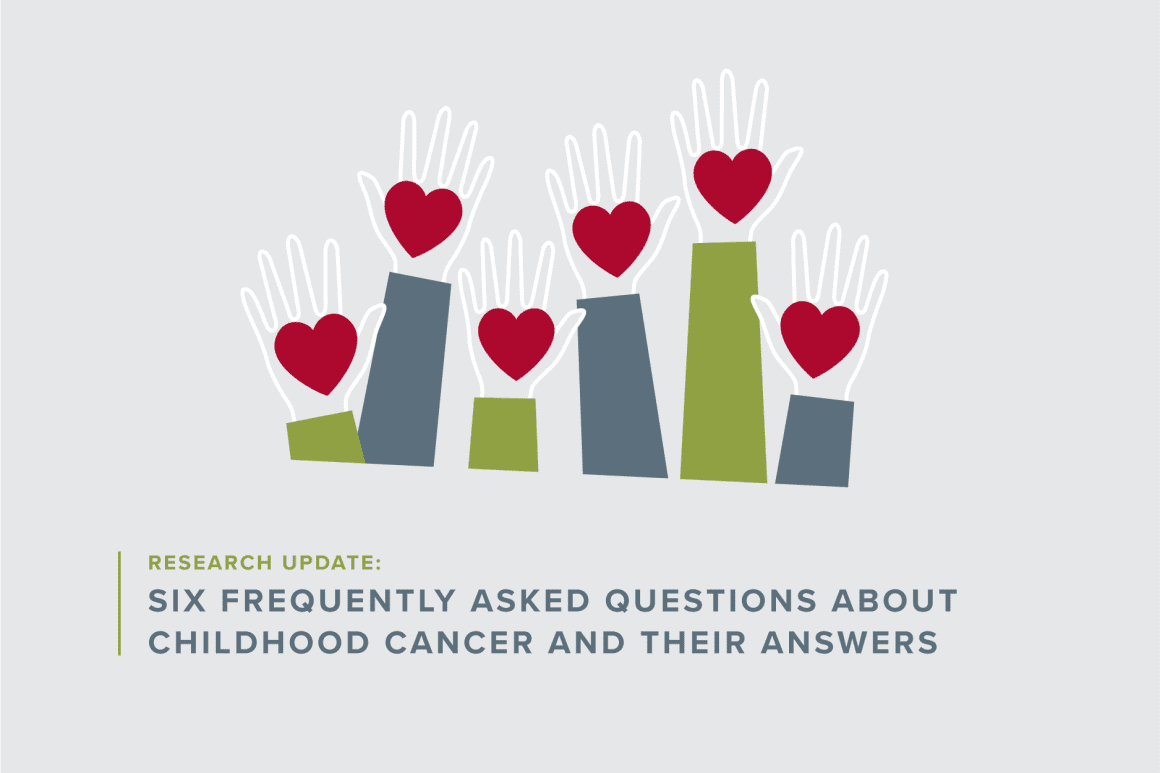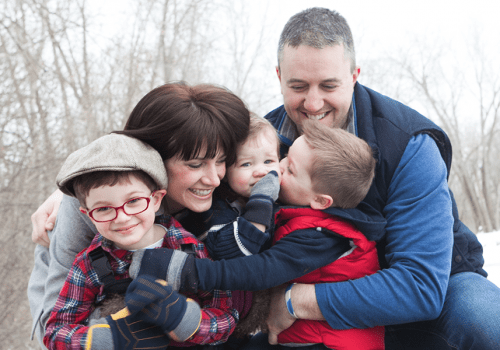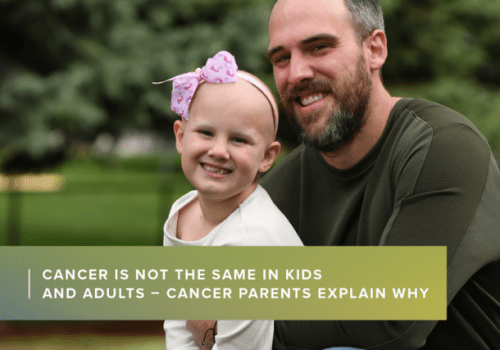What causes childhood cancer?
In children, the most common cause of cancer is randomly acquired DNA mutation, meaning childhood cancer is a disease of unfortunate random chance. Unlike adult cancers, childhood cancers aren’t caused by any behavioral or environmental factors (like smoking, overexposure to the sun or being exposed to toxic chemicals). In fact, there are some childhood cancers that develop before the child is even born.
Why don't we have a cure for childhood cancer yet?
There’s no single, clear answer for why there isn’t a cure for childhood cancer yet, but here are a few of the biggest reasons:
- Childhood cancer isn’t one disease – there are over 12 major types and 100 subtypes. No one drug or treatment will be able to effectively treat or cure all childhood cancers – researchers and doctors have to come at this problem from all angles.
- Childhood cancer research receives a tiny fraction of the funding that adult cancer research receives. You can help ensure childhood cancer research gets the funding it deserves by making a donation or starting a fundraiser.
- Childhood cancers are often considered “too rare” to receive research funding from large funding sources like the National Institute of Health. We believe no cancer is too rare to receive funding – read more about how we are ensuring no childhood cancer is left behind.
How can I help a family facing cancer?
We asked childhood cancer families, and they had a few great suggestions.
- Drop off a meal. Bonus points if you deliver it in disposable packaging so the family doesn’t have to worry about washing dishes and returning them to you.
- Offer to run errands for them. Grocery shopping, picking up or returning library books, taking their other kids to school or activities… any regular task you can take off their plate will free up time for them to get other things done, or simply rest. This is especially helpful if they’re at a point in treatment where they’re at the hospital for extended periods of time. Not having to worry about this task can take a weight off their shoulders.
- Send mail. The cancer families we talked to remember the excitement of opening personalized mail with their child. Send photos, stickers, cards, letters or gift cards to let the child you’re thinking about them.
For more tips, check out our guide: 5 Ways To Support a Family Facing Cancer.
Is it safe for me/my child to be around a child with cancer?
Cancer is not contagious, so there’s no risk that you or your child could “catch” cancer from a child who currently has it. But if you’re planning to visit a child going through cancer treatment, it’s always a good idea to practice good hygiene – washing hands and not visiting if you’re sick. This is because many cancer treatments knock down a child’s immune system, meaning even a small cold or infection could send them to the hospital. If you’re planning to visit, ask what safety measures you should follow to make sure you’re keeping the child with cancer safe.
Why do kids with cancer lose their hair?
For many kids with cancer, treatment includes multiple rounds of chemotherapy. Chemotherapy works by destroying any fast-growing cells in a child’s body. This includes cancer cells, but it also includes cells that make up things like hair follicles. Because of this, many kids going through chemo start to lose their hair, and sometimes also lose eyebrows and eyelashes. Check out this video to learn more about what chemotherapy does in a child’s body, and how your support is creating treatments that are safer, more targeted and have fewer side effects than chemo.
How long is treatment for childhood cancer?
Treatment for childhood cancers varies based on type and subtype. Some kinds require a single surgery, some several rounds of radiation, and others mean months of chemotherapy or stem cell transplant and recovery. Treatment for leukemia, the most common form of childhood cancer, often ranges from several months to over two years. If you know a family facing cancer, keep checking in on them, even during the lighter months of their treatment. Their needs will change over time, and they’ll appreciate knowing you haven’t forgotten about them.
Start a fundraiser for kids fighting cancer
One of the best ways you can help a child with cancer is to start a fundraiser to raise money for cancer research. No fundraising idea is too big or too small to make a lasting impact in the life of a child with cancer.




